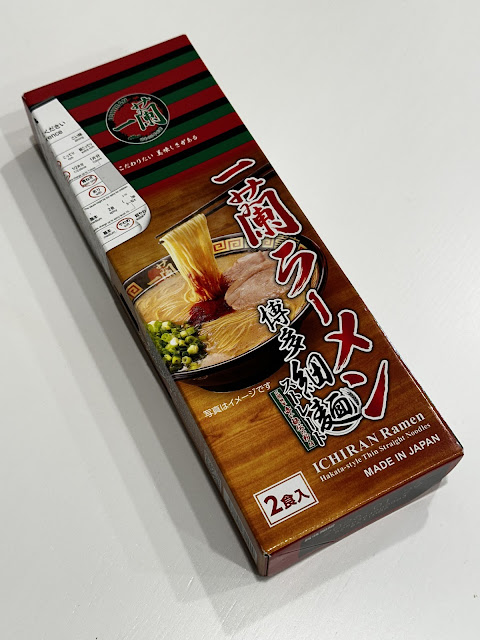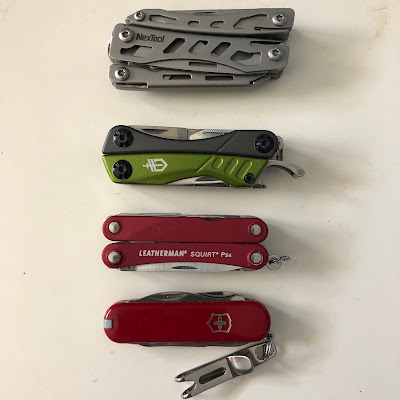Japanese Cell Phones, the Kindle, and the iPad
This situation isn't quite "The Good, The Bad, The Ugly" but it is interesting how these devices have affected Japan and the greater world. Once upon a time, about a decade ago, no one would have disputed that Japanese cellphones (ケイタイ or keitai) were the most advanced little multipurpose devices that existed. The Japanese even implemented the world's first cellular network. Well, at around the same rate (give or take a few years) as the rest of the world, the Japanese phones makers basically lost their monopoly on these ultra-cool little devices to the smartphone created originally by Apple as the iPhone.
An example of a Japanese cell phone shown on the left (this one even has an FM radio tuner). Other examples of Japanese cell phone functionality include mobile games, reading manga and books, e-mail, instant messengers, audio players, flash video, GPS, watching TV, e-money / instant payment (Mobile Suica), etc. While most of this stuff doesn't seem very advanced, now, at the time, it was pretty cool and no one else had it or only had bits of it.
http://en.wikipedia.org/wiki/Japanese_mobile_phone_culture
Blackberries, then the iPhone basically changed the game. The iPhone was the great game changer as it was not only functional - being a general purpose computer and phone with a great touch user interface, it was stylish. This was followed by the Android smartphones which will eventually end the domination of the regular cell phone.
As of the 2nd quarter of 2011, smartphones accounted for 45.5% of all cell phones shipped in Japan, with the phones being split between Android and iOS. No wonder the Japanese phone makers are scrambling to build smartphones (Samsung and Apple are the big winners). This just demonstrates how innovation can start just about anywhere, although the disruptive innovation here was not a low end product, but a high-end smartphone product that became ever cheaper and more capable. More about Android / iOS. In terms of anime character goods, there are tons of anime themed cases / decals for iPhones, but not for the other phones which still have a great variety of charms and such.
This now brings us to the Kindle e-book reader. I actually love my Kindle and have read about 35-40 novels on it since I got it in 2010. It is very light, portable (can use with a single hand), easy on the eyes with the e-ink, and it is about reading - long form reading. I don't really care about all the new media hype about "more than reading and such" as it is just a distraction. I'll talk about this new type of reading that is being hyped in another article some time, but suffice it to say I am interested in immersing myself in good, old fashioned storytelling from the point of view of the author. I am enjoying their creative work - with or without the help of an editor. Writing in this manner is a one person job and shouldn't be a team effort or be tied to some other media forms within the narrative.
The Japanese also developed e-book readers, see the Sony models for example, but these basically fell flat on their face as the e-readers and books were too expensive, the bookstores for them were hard to use, there was limited content available that was also locked up on one platform. The Amazon Kindle then comes along. The Kindle is a great little e-reader, crazy battery life, with cheap books, and a massive library (based on Amazon's amazing shopping / search experience) with cheap prices until the Publisher's agency model was put into place. Well, the cheap books are still there - look at all of the indie authors, and this is a model that would probably adapt well to Japan with doujinshi (just not derivative works based on copyrighted material). It will be interesting to see how independent software and creative graphical storytelling develop in Japan with the Kindle (both reader and tablet), and the iPad/iPhone influences.
Now for the iPad. I have to say that this device is excellent, and have one with about 500 apps on it (mostly games), but kinda heavy (need 2 hands to use it). It is the best darn tablet out there from a consumer point of view (e.g. watching streaming media, shopping, reading magazines, casual e-mail, web surfing, and especially content shifting). No way the Kindle competes in this space, or even most cell phones or smartphones. I also mentioned content shifting earlier. I think this is pretty important as it allows people to read web articles, news, and blogs in a reader-friendly format (much like a Kindle reading experience). Readers like Instapaper, Flipbook, Read It Later, and Zite are simplifying reading on the internet as you can have the articles you are interested in automatically picked and read them on a number of platforms as simple text with graphics. No distractions from the reading experience which many web usability designers don't seem to comprehend.
The main winning feature for all iOS devices is the application library available in the application store (damn their stupid trademark tricks). The massive number of apps makes the device so useful and fun. I'm also amazed at the time of writing how many free apps there are on a given day. If you had no money, you could still build a free software library over a year with some of your favourite apps on it. By free, I mean really free, with no ads and other annoying in-app purchases that cripple the software. Check out the Appchronicles and Apppicker websites which I have found very useful. This is something that really doesn't happen on Android as most things are already free, you just have to live with the annoying ads. For older children it is almost the same price to buy the cheapest 8GB iPod Touch then load up on the free software available instead of buying a DS or PSP (with 3 or 4 games). You will get hundreds of free games on the iPod instead of having just a few on the DS or PSP and the kids get a multipurpose entertainment device.
At this time, the iPad is insanely popular, and it is a very useful device as it is a nicely packaged general purpose computer. The Cult of Mac had an interesting article about why this tablet is hated by so many industries and they are sooo right! Even in the traditional computer game industries where the Japanese have been the leaders for so long (other than first person shooters) is changing. Casual gaming via iOS and smartphone devices is eating up the market for most video games as the games are either free or so much cheaper for the same thing on a Sony PSP or Nintendo DS. This is a major disruption that is bad for Nintendo and Sony who depend on hardware, but good for consumers as there should be greater creativity and availability of software for cheap (due to the way the stores operate). The iPad / smartphones are better hardware with superior software and interface for a cheaper price. Again, there really isn't a Japanese competitor right now either.
It looks like Jobs out-innovated everyone here with his ideas with Android adopting Job's model to succeed differently. Time ticks on though and it'll be different in ten more years.
AFTER NOTE (Update Feb 1, 2012): NEC in Japan just announce there will be 7000 layoffs in Japan. Apparently their cell phone sales are not doing so well in the economic downturn and Apple iPhone competition. The game has certainly changed.
http://news.yahoo.com/japans-nec-says-cut-10-000-jobs-070017965.html
| Flickr / Nemo's great uncle |
http://en.wikipedia.org/wiki/Japanese_mobile_phone_culture
Blackberries, then the iPhone basically changed the game. The iPhone was the great game changer as it was not only functional - being a general purpose computer and phone with a great touch user interface, it was stylish. This was followed by the Android smartphones which will eventually end the domination of the regular cell phone.
As of the 2nd quarter of 2011, smartphones accounted for 45.5% of all cell phones shipped in Japan, with the phones being split between Android and iOS. No wonder the Japanese phone makers are scrambling to build smartphones (Samsung and Apple are the big winners). This just demonstrates how innovation can start just about anywhere, although the disruptive innovation here was not a low end product, but a high-end smartphone product that became ever cheaper and more capable. More about Android / iOS. In terms of anime character goods, there are tons of anime themed cases / decals for iPhones, but not for the other phones which still have a great variety of charms and such.
| Flickr / theunquietlibrary |
The Japanese also developed e-book readers, see the Sony models for example, but these basically fell flat on their face as the e-readers and books were too expensive, the bookstores for them were hard to use, there was limited content available that was also locked up on one platform. The Amazon Kindle then comes along. The Kindle is a great little e-reader, crazy battery life, with cheap books, and a massive library (based on Amazon's amazing shopping / search experience) with cheap prices until the Publisher's agency model was put into place. Well, the cheap books are still there - look at all of the indie authors, and this is a model that would probably adapt well to Japan with doujinshi (just not derivative works based on copyrighted material). It will be interesting to see how independent software and creative graphical storytelling develop in Japan with the Kindle (both reader and tablet), and the iPad/iPhone influences.
| Flickr / Tsubaki Kaworu |
The main winning feature for all iOS devices is the application library available in the application store (damn their stupid trademark tricks). The massive number of apps makes the device so useful and fun. I'm also amazed at the time of writing how many free apps there are on a given day. If you had no money, you could still build a free software library over a year with some of your favourite apps on it. By free, I mean really free, with no ads and other annoying in-app purchases that cripple the software. Check out the Appchronicles and Apppicker websites which I have found very useful. This is something that really doesn't happen on Android as most things are already free, you just have to live with the annoying ads. For older children it is almost the same price to buy the cheapest 8GB iPod Touch then load up on the free software available instead of buying a DS or PSP (with 3 or 4 games). You will get hundreds of free games on the iPod instead of having just a few on the DS or PSP and the kids get a multipurpose entertainment device.
At this time, the iPad is insanely popular, and it is a very useful device as it is a nicely packaged general purpose computer. The Cult of Mac had an interesting article about why this tablet is hated by so many industries and they are sooo right! Even in the traditional computer game industries where the Japanese have been the leaders for so long (other than first person shooters) is changing. Casual gaming via iOS and smartphone devices is eating up the market for most video games as the games are either free or so much cheaper for the same thing on a Sony PSP or Nintendo DS. This is a major disruption that is bad for Nintendo and Sony who depend on hardware, but good for consumers as there should be greater creativity and availability of software for cheap (due to the way the stores operate). The iPad / smartphones are better hardware with superior software and interface for a cheaper price. Again, there really isn't a Japanese competitor right now either.
It looks like Jobs out-innovated everyone here with his ideas with Android adopting Job's model to succeed differently. Time ticks on though and it'll be different in ten more years.
AFTER NOTE (Update Feb 1, 2012): NEC in Japan just announce there will be 7000 layoffs in Japan. Apparently their cell phone sales are not doing so well in the economic downturn and Apple iPhone competition. The game has certainly changed.
http://news.yahoo.com/japans-nec-says-cut-10-000-jobs-070017965.html











Comments
Post a Comment